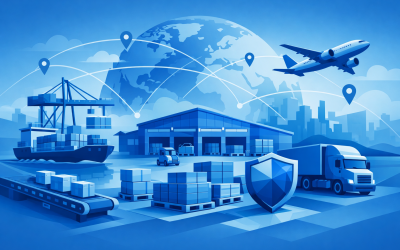Finding your best third party logistics firm fit can be a real challenge, especially if you happen to sell a product that needs a little extra handling or is kind of unusual.
That doesn’t mean you’ll never meet your happily ever after, though, just that you’ll have to dig a little deeper when you’re searching to make sure that you make a match with a fulfillment house that not only is budget-friendly, but also provides your customers with a level of support that you can live with.
Tips for Choosing a Perfect 3PL Match
It can be a difficult decision to choose the 3PL you’ll be doing business with for the long term, but there are ways to get to know what they’ll be like as a partner if you’re careful.
If you ask a lot of questions, snoop their online reputation and try these tips you should be gold:
Pick a 3PL with a central location. So many small businesses don’t give a second thought to the location of their warehousing and distribution centers, but location really does matter. If all your goods move out from a point that’s central to your customer base, all orders will arrive in roughly the same amount of time and at the same cost. Your shoppers and your wallet will thank you.
Make sure they handle what you sell. Not all 3PLs handle all kinds of products. If you sell something that requires special handling or rotation, you definitely need to ask ahead of time if your potential 3PL has other customers like you. An affirmative means they already know how to handle your merchandise and you won’t have to teach them, but if they have had customers like you in the past, just not currently, don’t automatically toss their name in the bin.
You can’t have too much data. The success of logistics largely depends on how much data can be gathered and what it can be used for. If your potential 3PL is gathering lots of data to streamline processes and help you improve your shop’s offerings, then you’ve found a winner, indeed.
Ask what carriers will be used for your shipments. You might not care today, but it could matter later, so always ask what carriers are going to be used for your shipments. You want to be sure that your buyers are getting high quality shippers and fast-moving supply chains, not bottom of the barrel delivery companies that allow the 3PL to increase their profit margins without increasing their service levels.
Have them walk you through their claims handling process. Don’t let a potential 3PL pretend like they’ve never had to handle a claim for damaged goods, because everybody has at some point. You need a 3PL that’s going to be willing to go to bat for you if a carrier’s action results in a claim. If your 3PL carries insurance to cover carrier defaults, even better.
Finding the best 3PL fit is a little like finding the right house or the perfect hat, you should have some idea what you’re looking for, but there’s also that moment when everything just clicks. When all the boxes line up and it feels like you can really work with a 3PL team, you’ll know it’ll be a great relationship.









